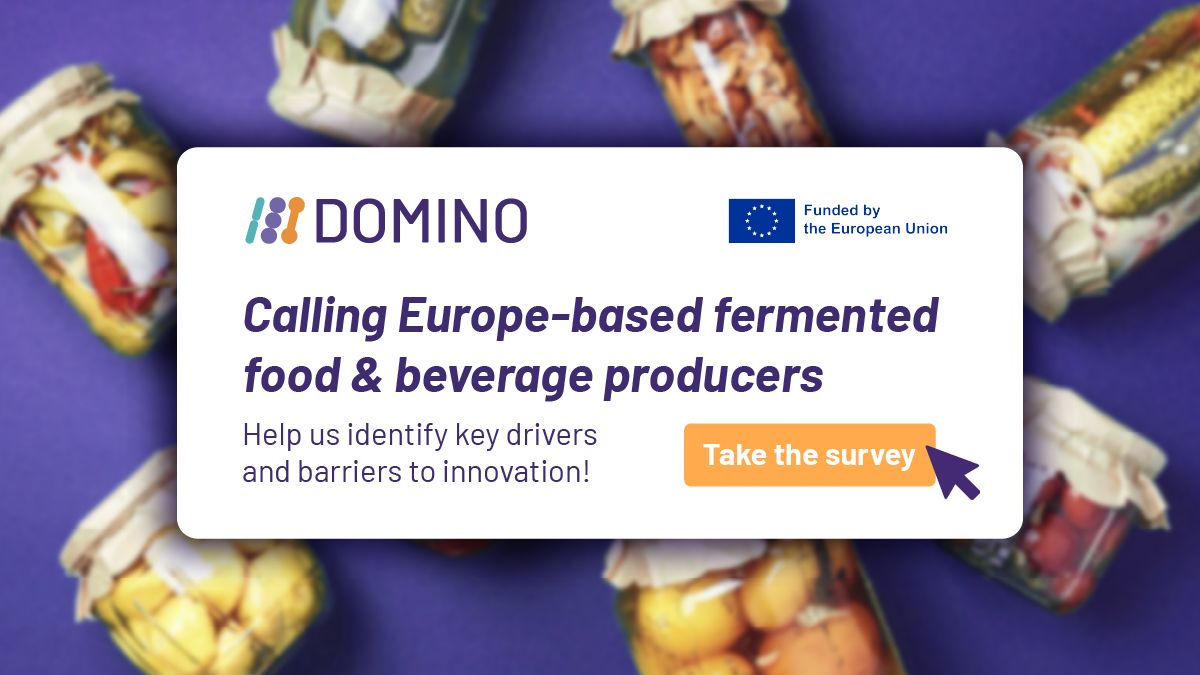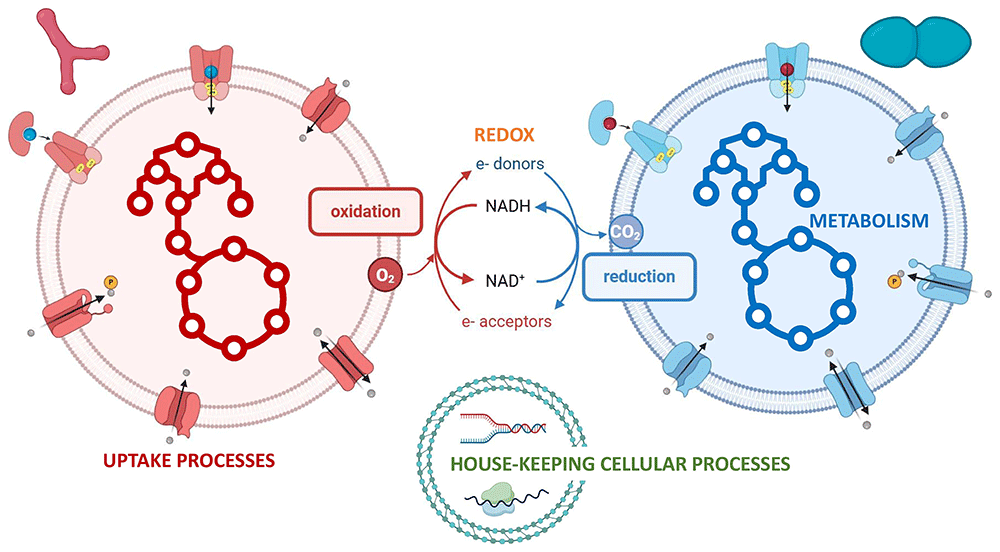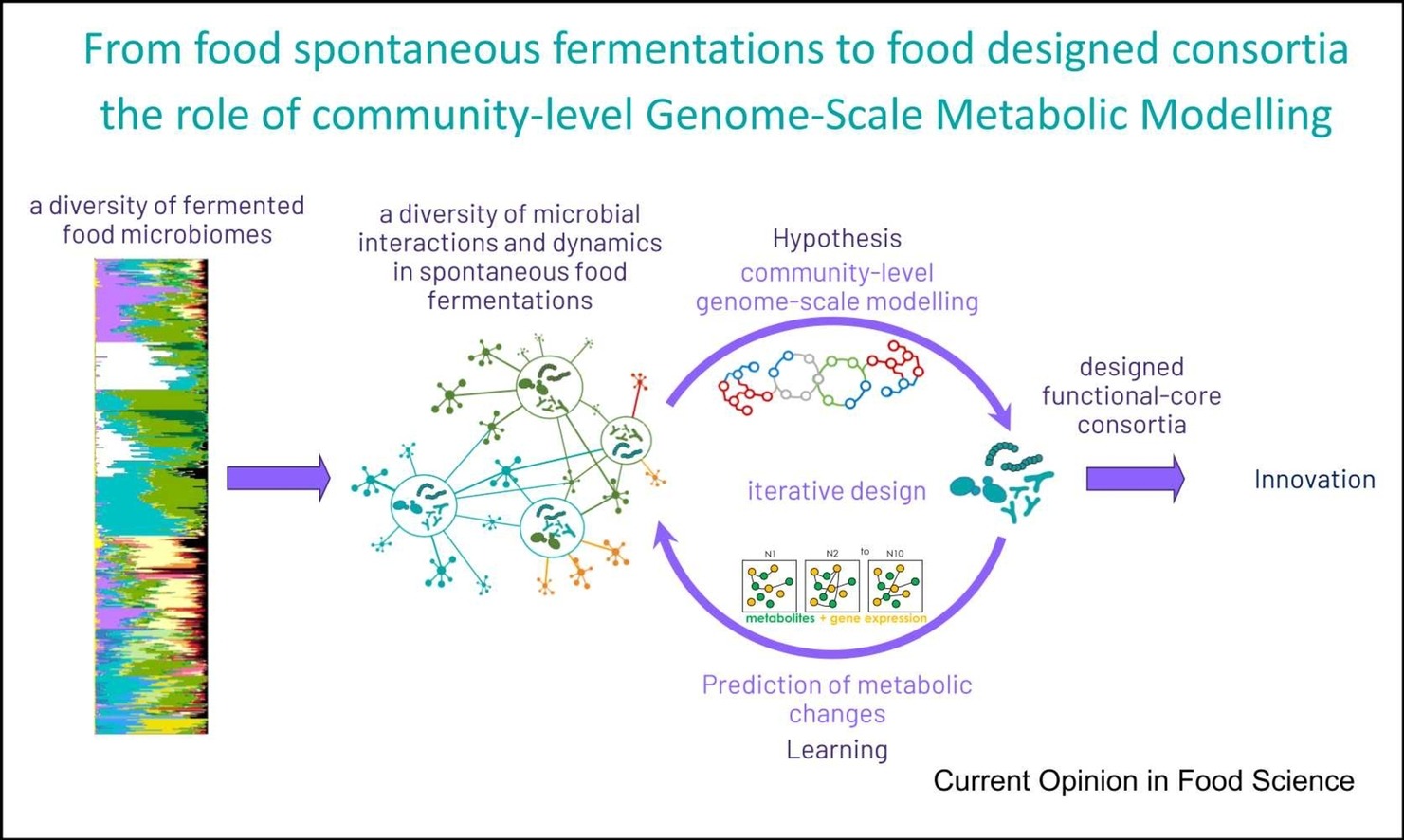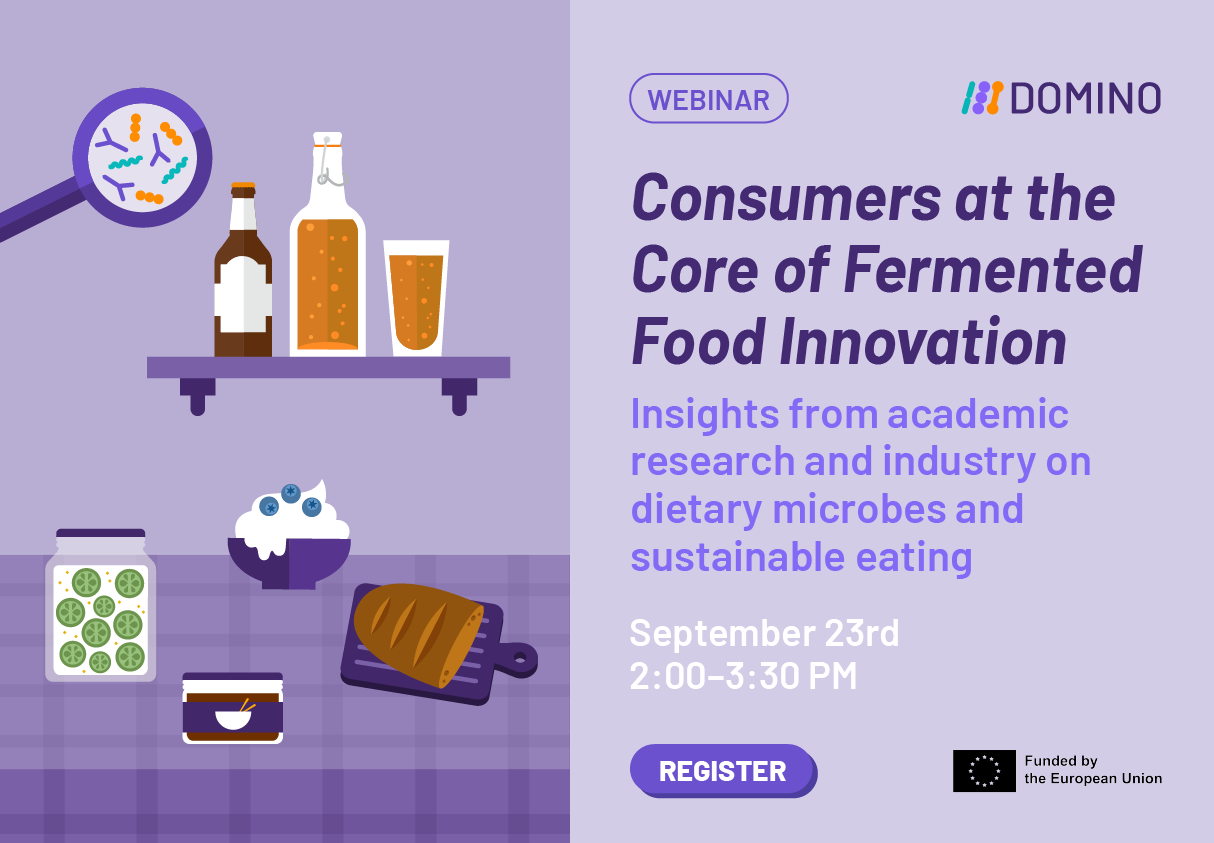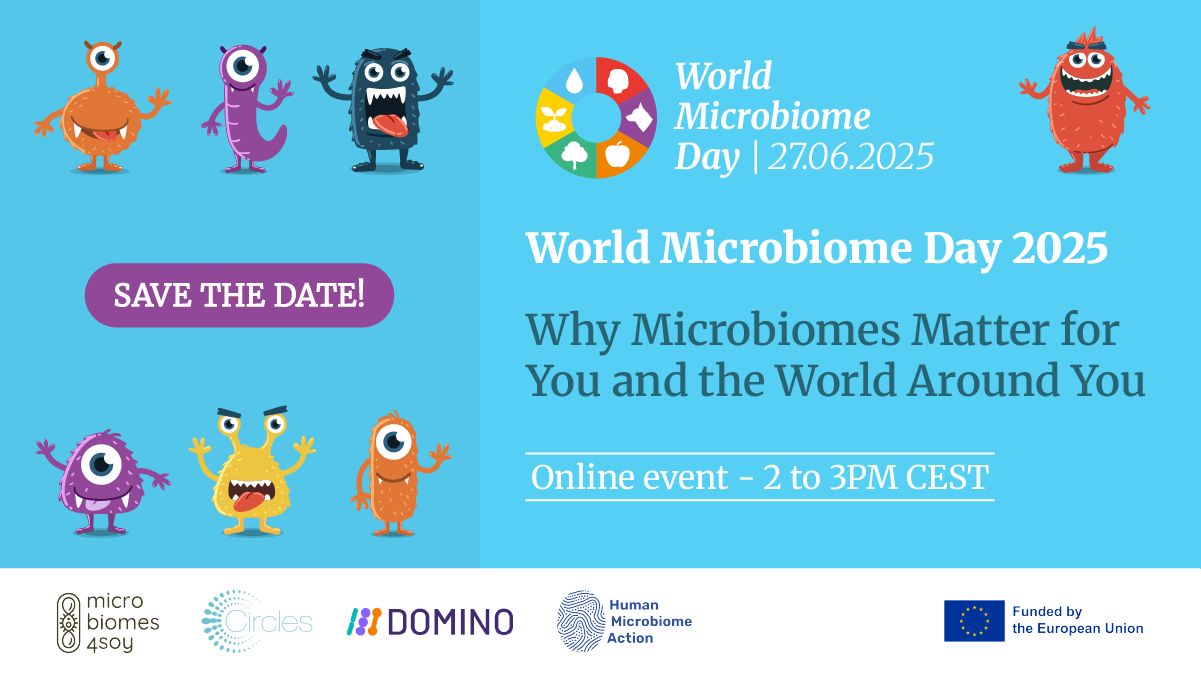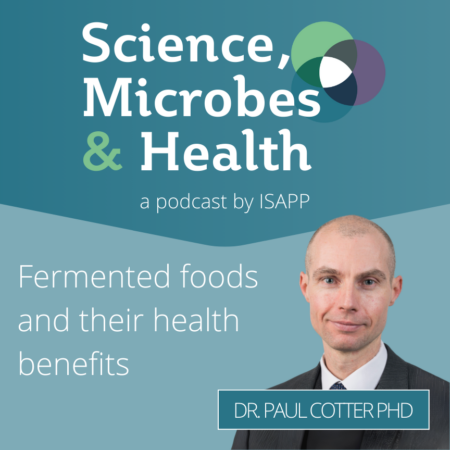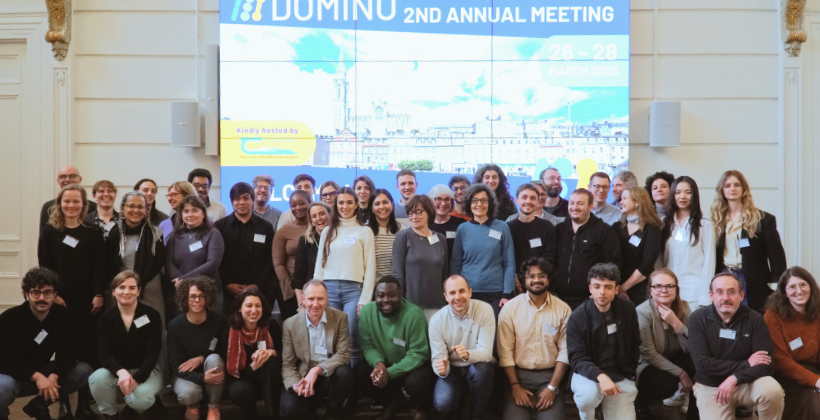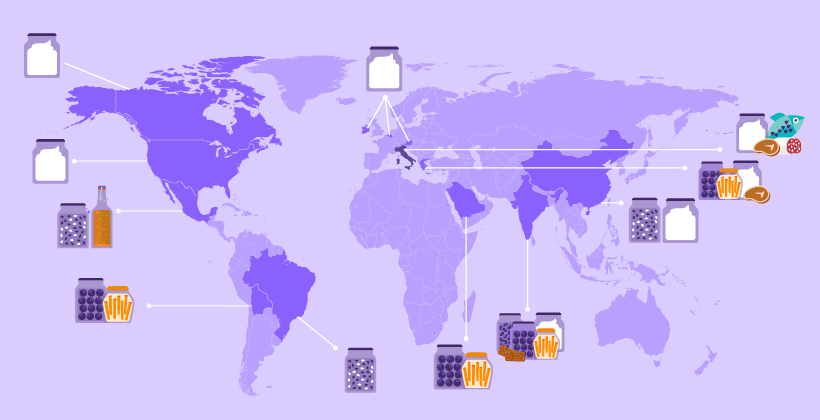The DOMINO website has been expanded with a new Research section, offering an overview of the scientific work carried out within the project, the first results obtained so far, and the planned next steps. The new section brings together information on DOMINO’s main research activities, providing a structured view of how the project investigates the […]
Calling Europe-based fermented food & beverage producers
The EU-funded DOMINO project is inviting participation of Europe-based fermented food/beverage producers to take part in a short online survey, aiming to better understand the key drivers and barriers to innovation in the fermented food sector. The responses will help build a holistic picture of which changes in the production system are needed to strengthen […]
EFSA guidance on characterisation and risk assessment of microorganisms used in the food chain
A milestone for food safety science – guidance on microorganisms in food! Back in January, the Domino EU consortium came together to respond to the European Food Safety Authority (EFSA) public consultation on the draft guidance for “Characterisation and risk assessment of microorganisms used in the food chain”. This was a collaborative effort that reflected […]
Could the complex communities of microbes in fermented foods be shaping the way these foods function at a molecular level?
Until now, there was no comprehensive framework to systematically map microbial metabolic functions in food, making it difficult to explore the potential implications for health, nutrition, and sustainability. That’s why researchers from the Domino EU project, in collaboration with the ANR Metasimfood Project, have been working on a computational framework that organizes ~1,985 microbial genes […]
Microbiome Metabolic Modeling as a tool for innovation in fermented foods
Recent advances in genome-scale metabolic modeling (GSMM) are transforming our understanding of how the microbiomes of fermented foods operate, but there is still a crucial gap: while GSMM is well-established in microbial ecology, its application to food systems innovation remains under-leveraged. The review paper, “Microbiome Metabolic Modeling as a Tool for Innovation in Fermented Food […]
Stakeholder Forum: Consumers at the Core of Fermented Food Innovation
The second DOMINO Stakeholder Forum (SF) webinar took place on September 23rd, 2025, bringing together experts and industry leaders to discuss the pivotal role of consumer research in advancing the field of fermented foods. The event featured fresh insights into European fermented food consumption, including the use of the innovative 3FQ tool. Speakers from academia […]
Celebrating World Microbiome Day 2025
Each year on June 27th, we celebrate #WorldMicrobiomeDay to spotlight the invisible yet powerful communities of microorganisms, microbiomes, that shape our health, food systems, and environment. This year’s theme, “Microbiome 101: What You Need to Know,” focused on making microbiome science accessible to everyone. From gut health to sustainable agriculture, the goal was to raise […]
Exploring the health benefits of fermented foods: Dr. Paul Cotter talks fermentation techniques, applications for health and Domino’s nutritional trial on the ISAPP Podcast
Dr. Paul Cotter of Teagasc (Ireland), one of the researchers involved in Domino, was recently invited to the ‘Science, Microbes & Health’ podcast by the International Scientific Association for Probiotics and Prebiotics (ISAPP). In this podcast episode, Dr Cotter talks about the historical roots of fermented foods as a preservation method, and how they have […]
Domino’s Second Annual Meeting in Cork, Ireland
Researchers and industry partners from the DOMINO project convened in Cork, Ireland, from March 26-28 for the second annual meeting. This event provided a platform for experts to review progress, share insights, and lay out the next steps in their mission to explore the health benefits of fermented foods and develop innovative plant-based alternatives. DOMINO […]
Food Metagenomic Data: news from University of Trento
A new version of the curatedFoodMetagenomicData (cFMD), developed within the DOMINO project, has been released by University of Trento.

